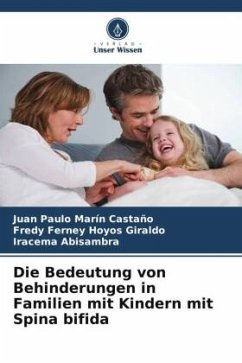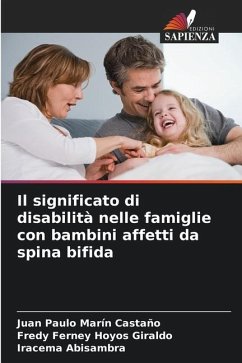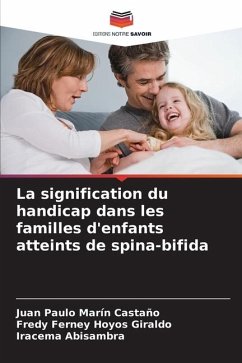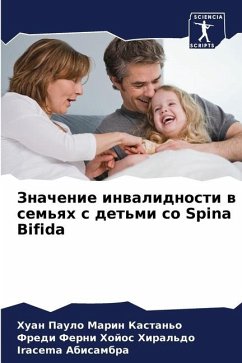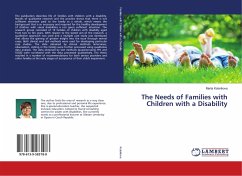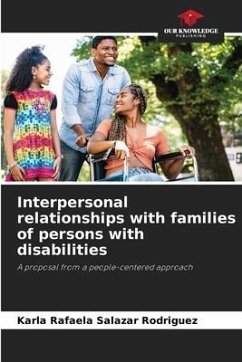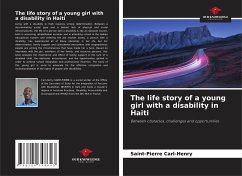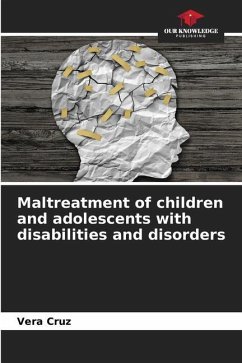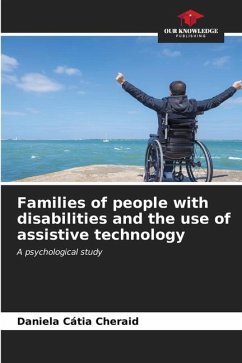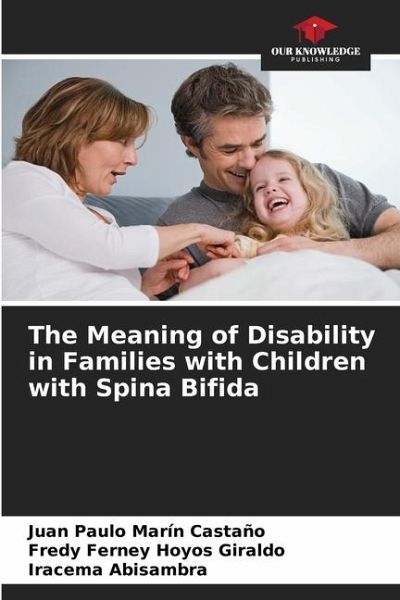
The Meaning of Disability in Families with Children with Spina Bifida
Versandkostenfrei!
Versandfertig in 6-10 Tagen
41,99 €
inkl. MwSt.

PAYBACK Punkte
21 °P sammeln!
This research was motivated by the question of the meaning of disability in families with children with spina bifida. The purpose was to unravel the categories of disability that give structure to families with children with disabilities, how they sustain and support each other to face this dynamic that involves all members of the family in one way or another. This research was framed in a qualitative methodological design with a comprehensive approach, incorporating findings from the experiences of the families, under the method of hermeneutic analysis, in which the situations of the family m...
This research was motivated by the question of the meaning of disability in families with children with spina bifida. The purpose was to unravel the categories of disability that give structure to families with children with disabilities, how they sustain and support each other to face this dynamic that involves all members of the family in one way or another. This research was framed in a qualitative methodological design with a comprehensive approach, incorporating findings from the experiences of the families, under the method of hermeneutic analysis, in which the situations of the family members are interpreted. Gender roles are accentuated in the families, mothers continue to be the main caregivers, as this requires greater understanding and adaptation to everyday conditions. Fathers are responsible for the family's support and external relations.





